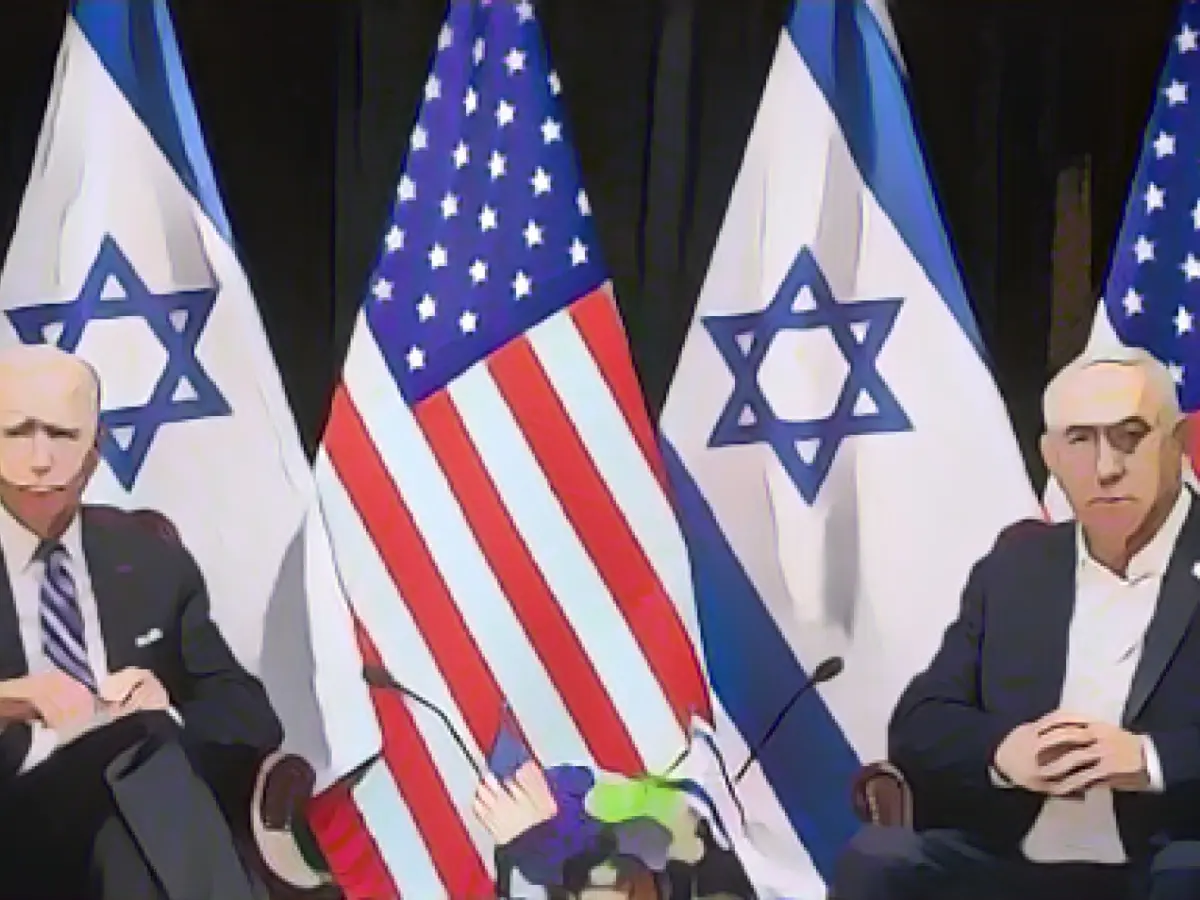Tensions Surface between Biden and Netanyahu over Two-State Solution
Ever since the standoff between Israel and the militant Islamic group Hamas started a couple of months back, the relationship between U.S. President Joe Biden and Israeli Prime Minister Benjamin Netanyahu has faced a significant test. This conflict has led to public disagreements between the two, as they hold different views on how to proceed towards resolution.
The two-state solution, a long-standing initiative advocated by the U.S. and many other Western nations, is aimed at fostering a peaceful coexistence between an independent Palestinian state and the state of Israel. Though this concept has been widely supported, Netanyahu expressed his reservations, alluding to potential pitfalls that arose during the Oslo Accords signed in the U.S. in 1993.
Following a phone conversation with Netanyahu, Biden publicly acknowledged the rift in their views. The Israeli leader acknowledged the "difference of opinion" between the allies, while remaining hopeful for a reconciliation. However, he warned against repeating the mistakes of the past, particularly those made during the Oslo Accords, which granted the Palestinians autonomous rule in the West Bank and Gaza Strip.
Hamas, a radical Islamic Palestinian organization, initiated attacks on Israel on October 7th. This marked the worst attack on Israel since its establishment 75 years ago. In response, Israel proceeded to bomb targets in the Gaza Strip, launch ground offensives, and announced its intention to eliminate Hamas. Despite this, the Israeli government has yet to disclose its plans for the Gaza Strip following the end of the conflict.
Additional Insights
Biden and Netanyahu's opposing views on the two-state solution can be attributed to their contrasting priorities and strategic approaches.
- Biden's Approach: President Biden values diplomatic engagement to resolve the conflict, emphasizing the release of hostages held by Hamas and addressing the urgent need for humanitarian aid and regional stability. However, his emphasis on balancing security and diplomacy necessitates a nuanced approach towards the idea of a Palestinian state.
- Netanyahu's Stance: Prime Minister Netanyahu is primarily concerned with Israeli security, which has led to his vocal opposition to the two-state solution. He is actively pursuing the normalization of relations with Arab states and believes that they could establish a Palestinian state within their own territory, bypassing the Palestinian cause entirely.
Despite their differences, the two leaders must collaborate to seek a lasting and mutually beneficial resolution to the Israel-Palestinian conflict, realizing that the future of millions depends on it.
Sources: - - "Biden's foreign policy and the Israel-Palestine conflict" by Ilan Goldberg (Brookings Institution, 2021) - "Israel-Gaza conflict: Netanyahu's new approach to Palestinian statehood" by Roee Ruttenberg (Haaretz, 2021)








